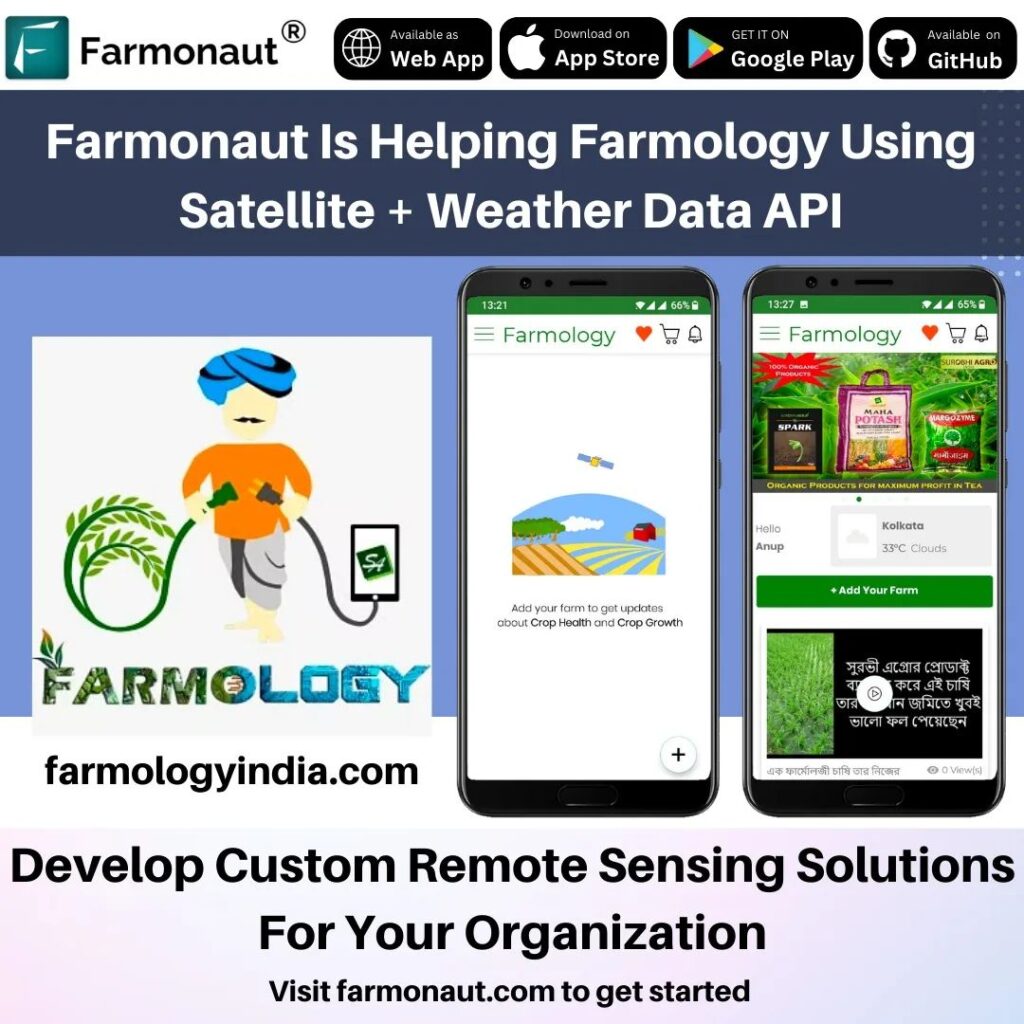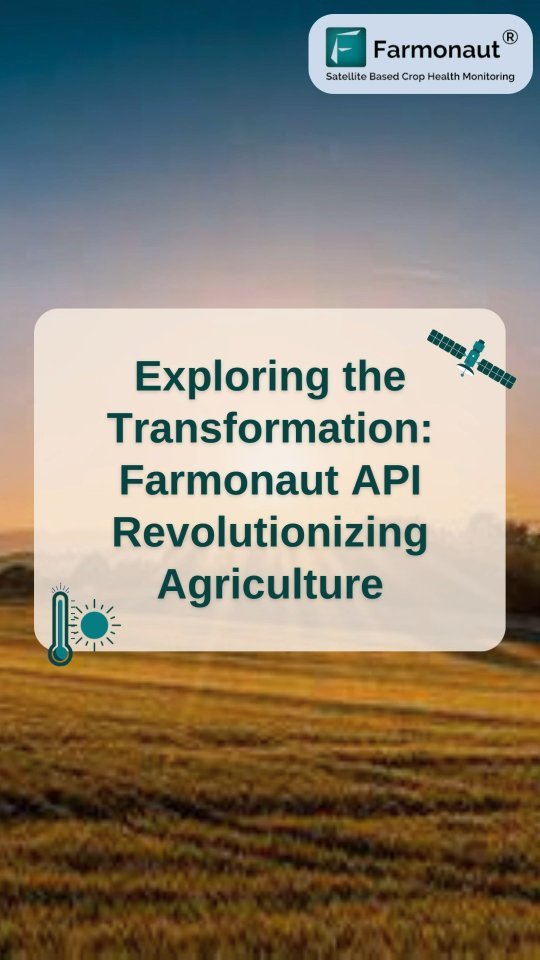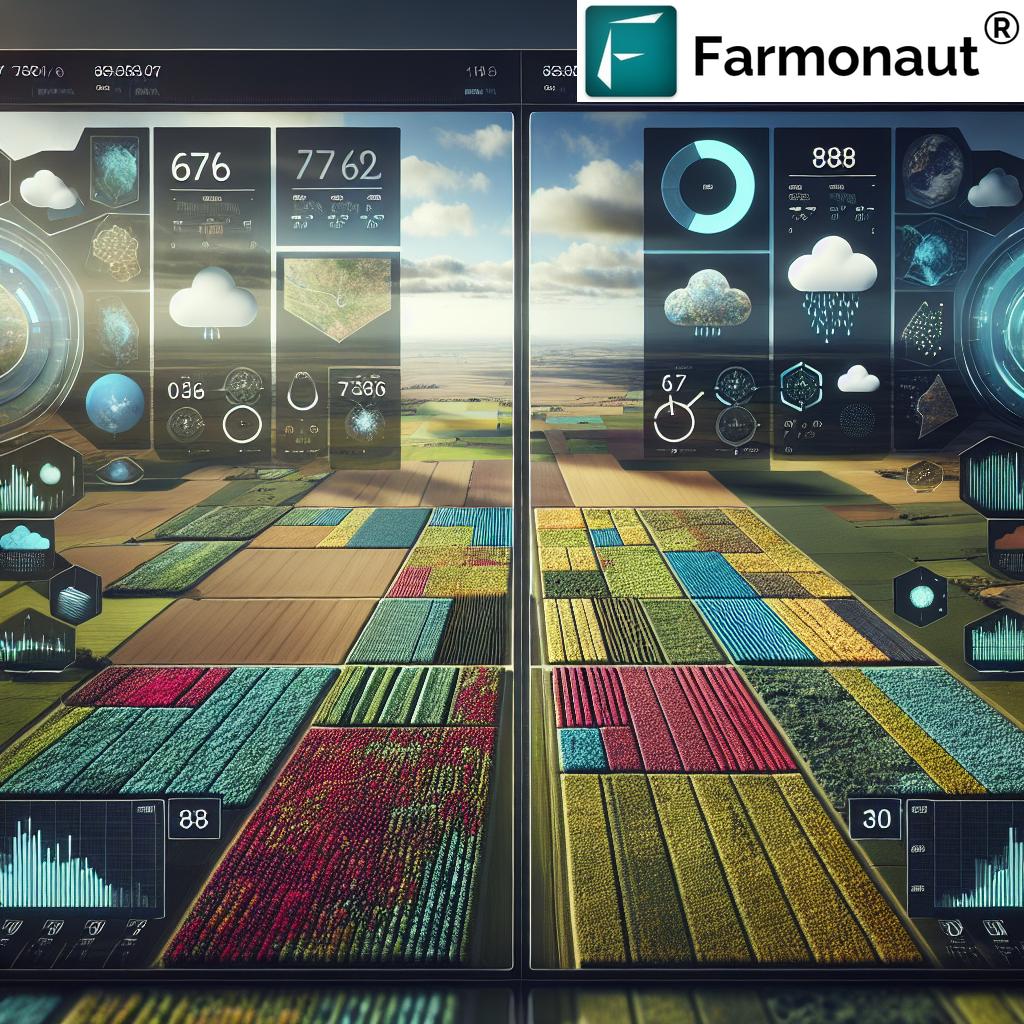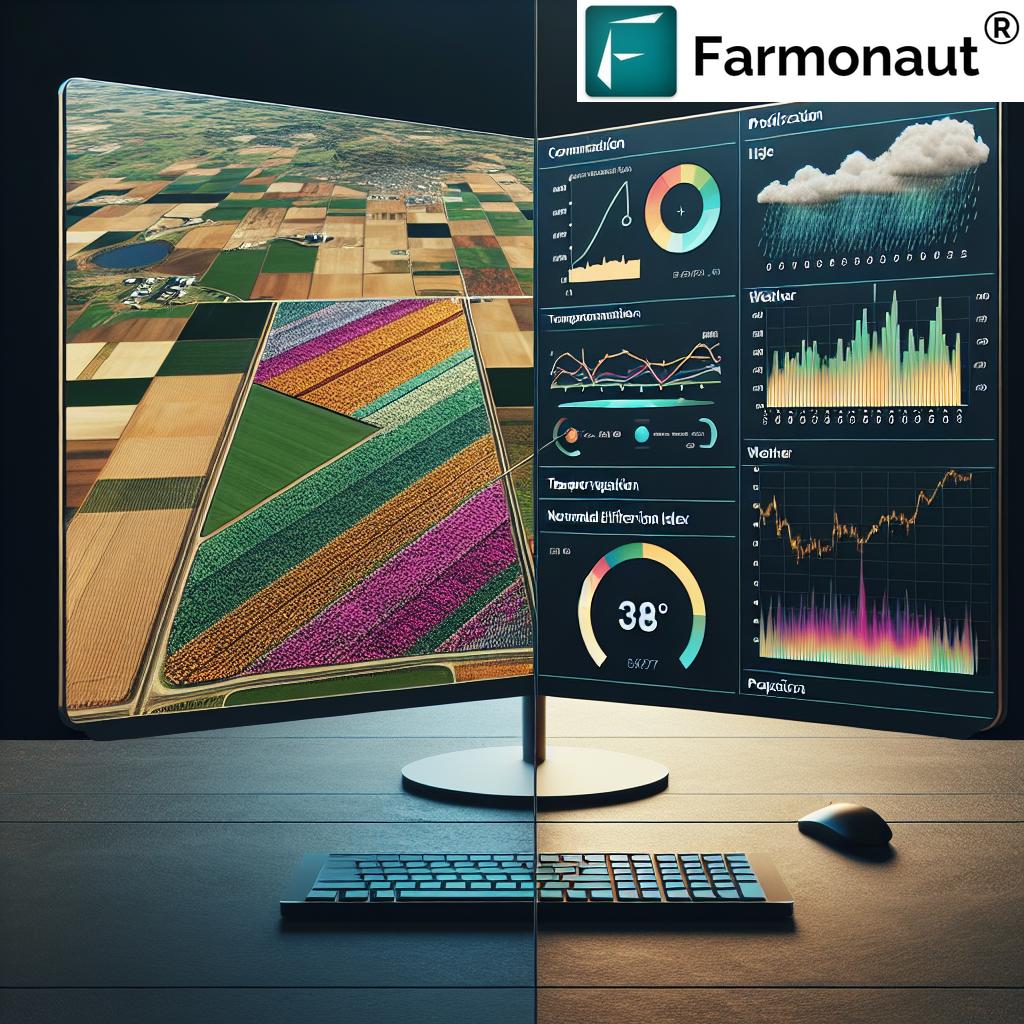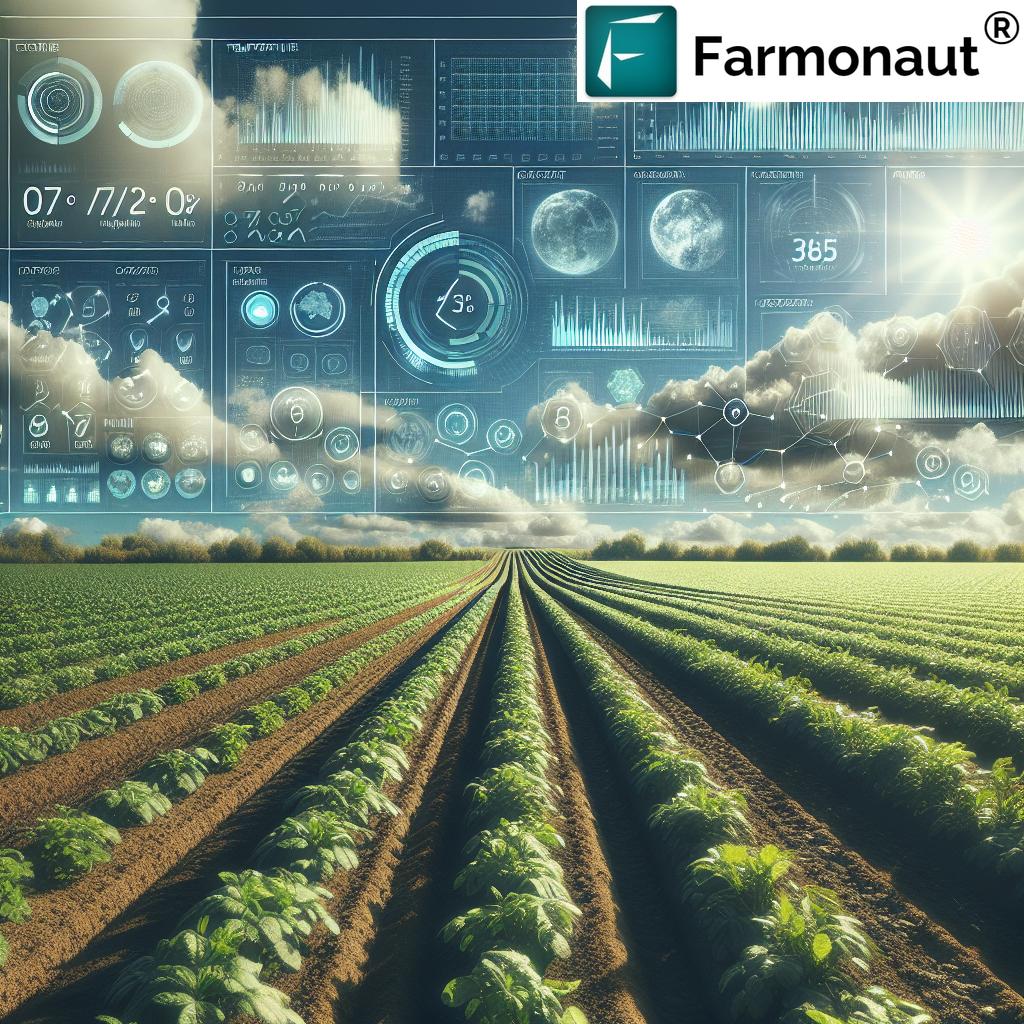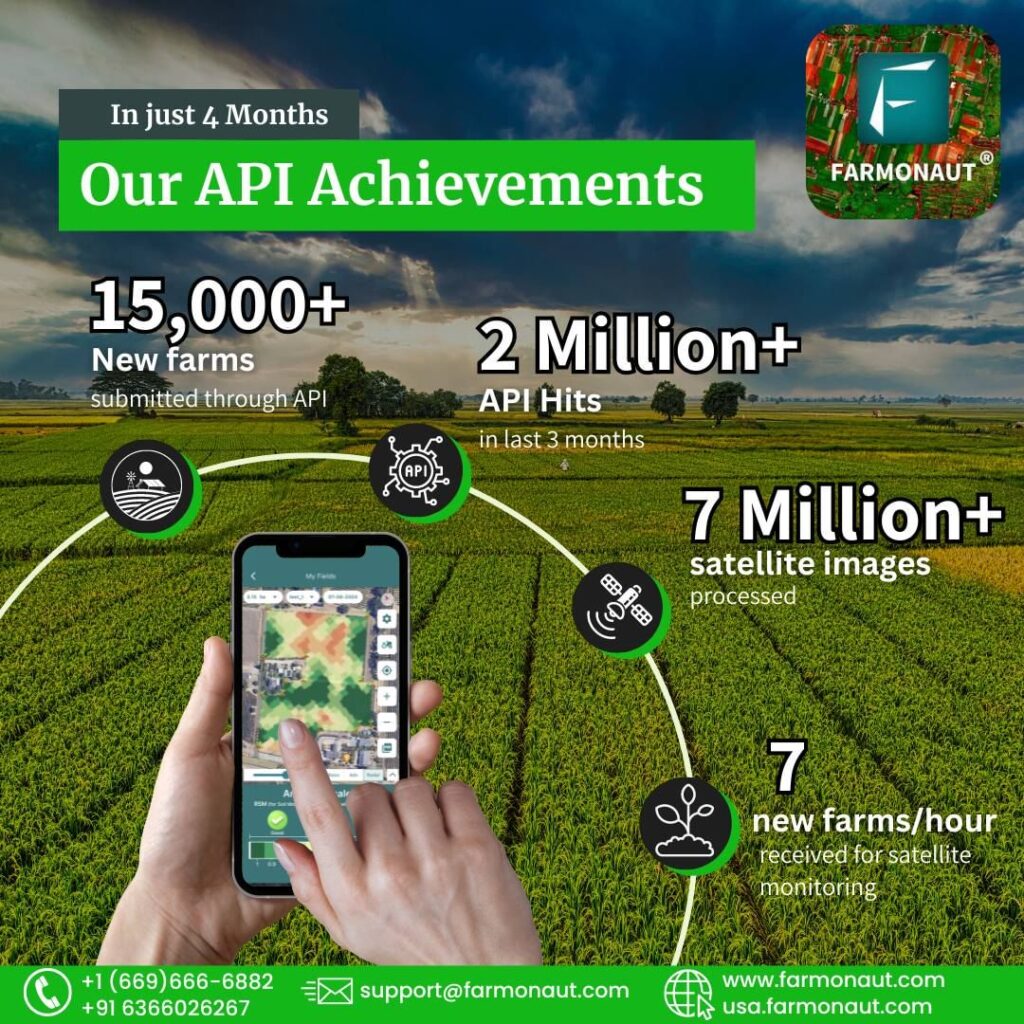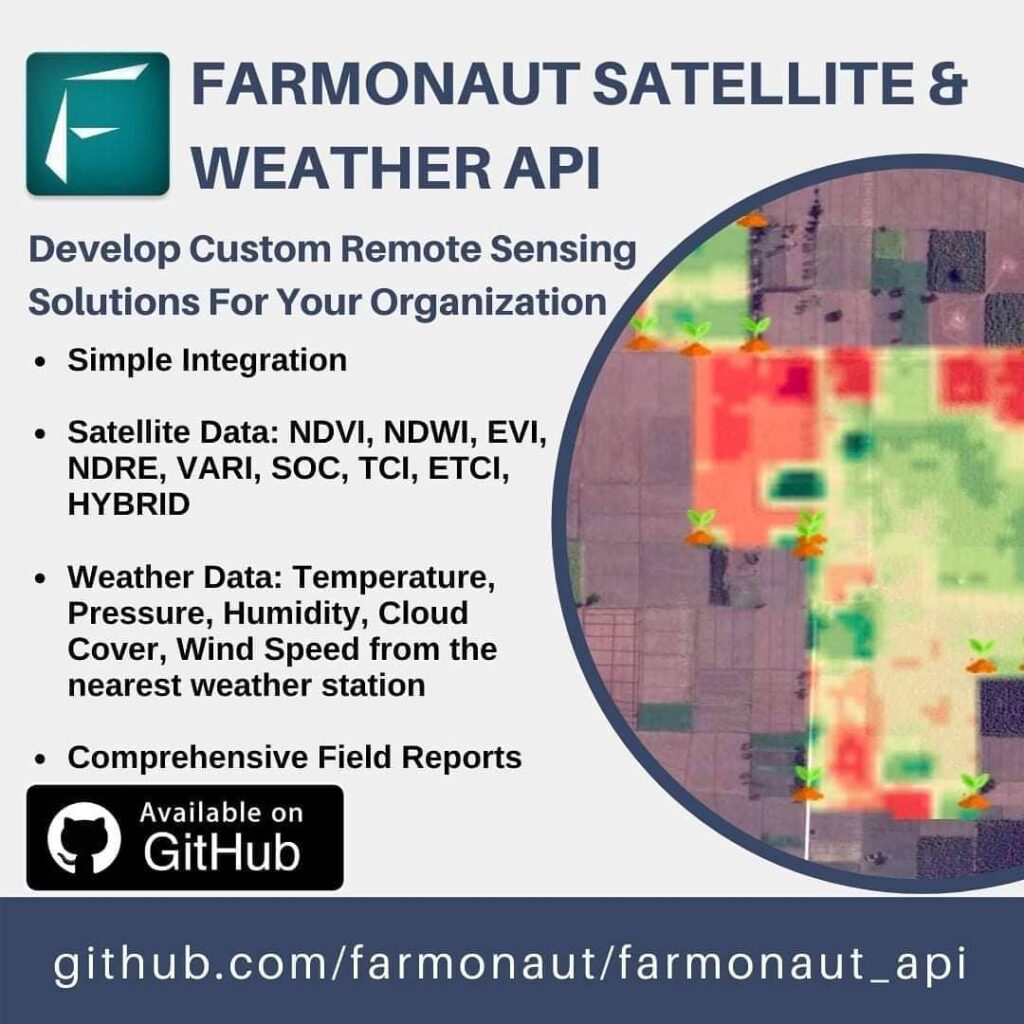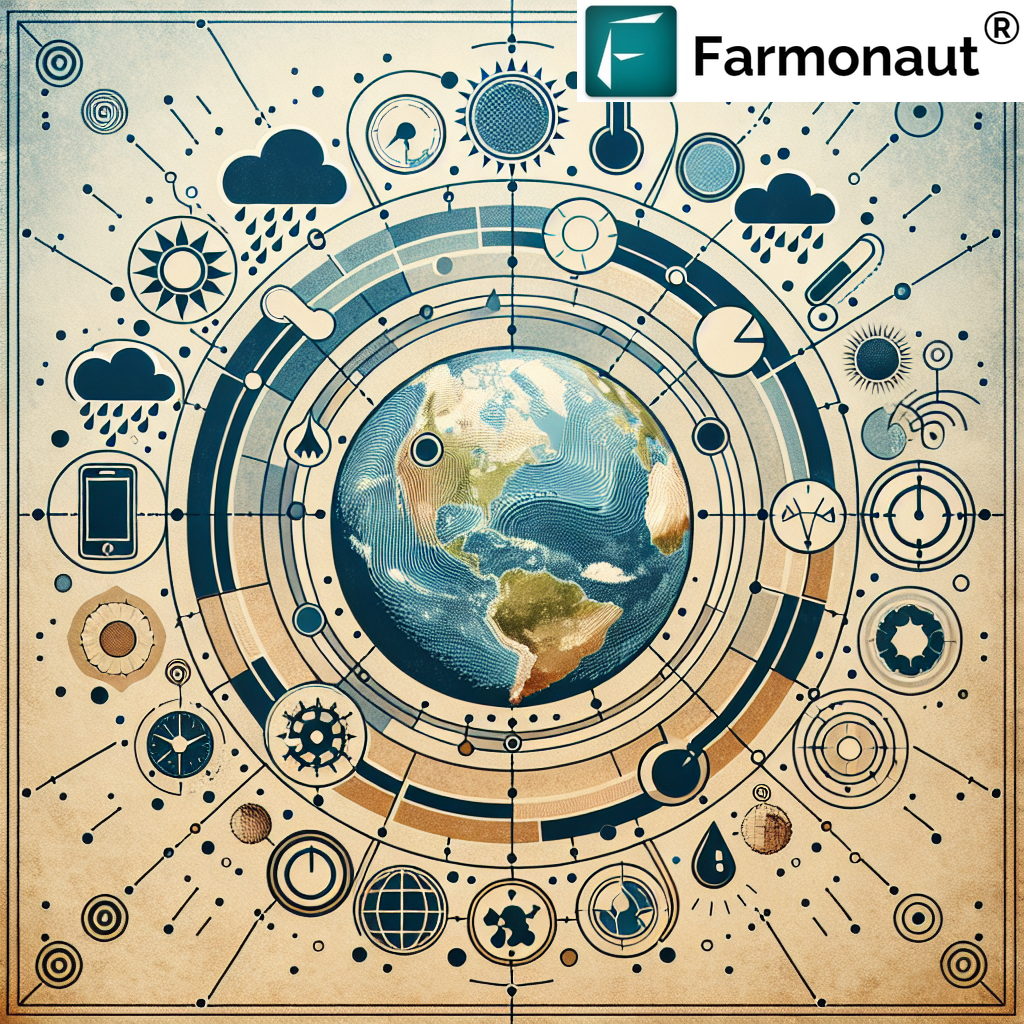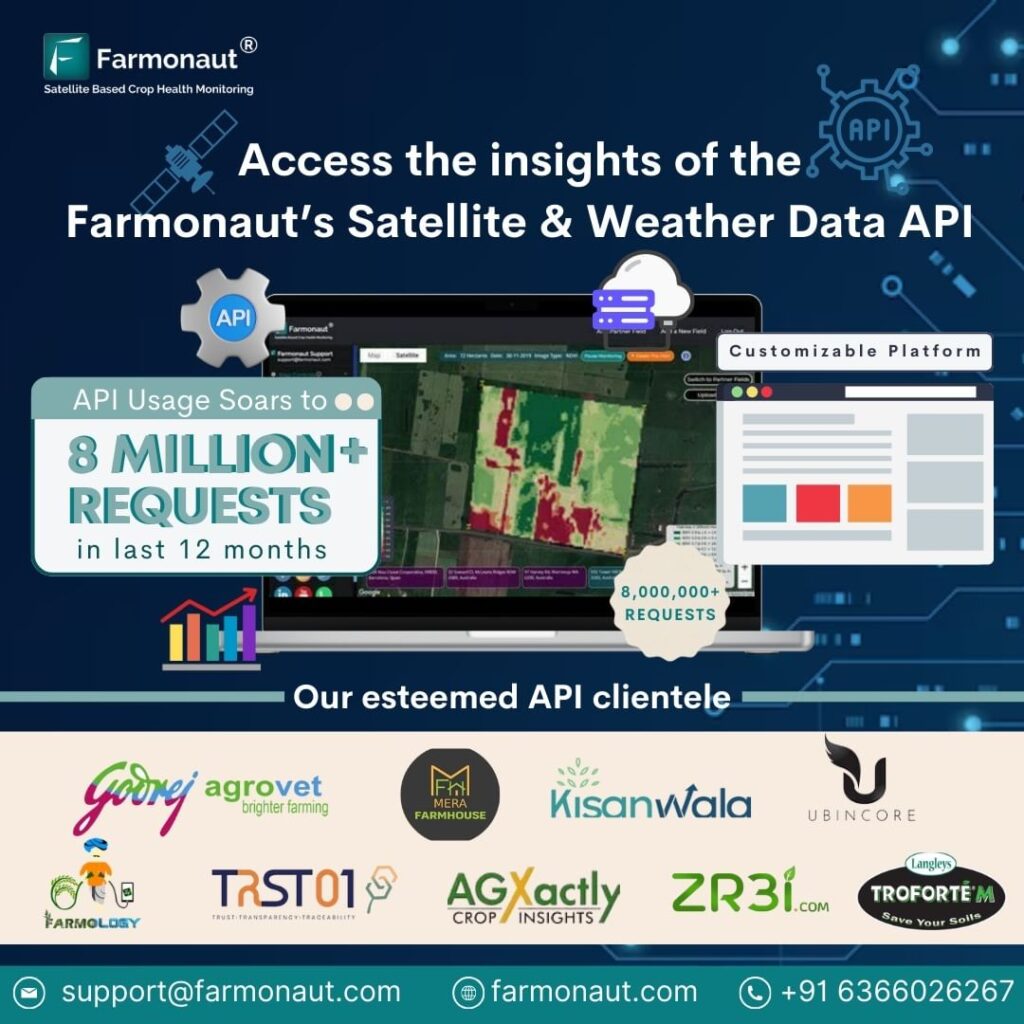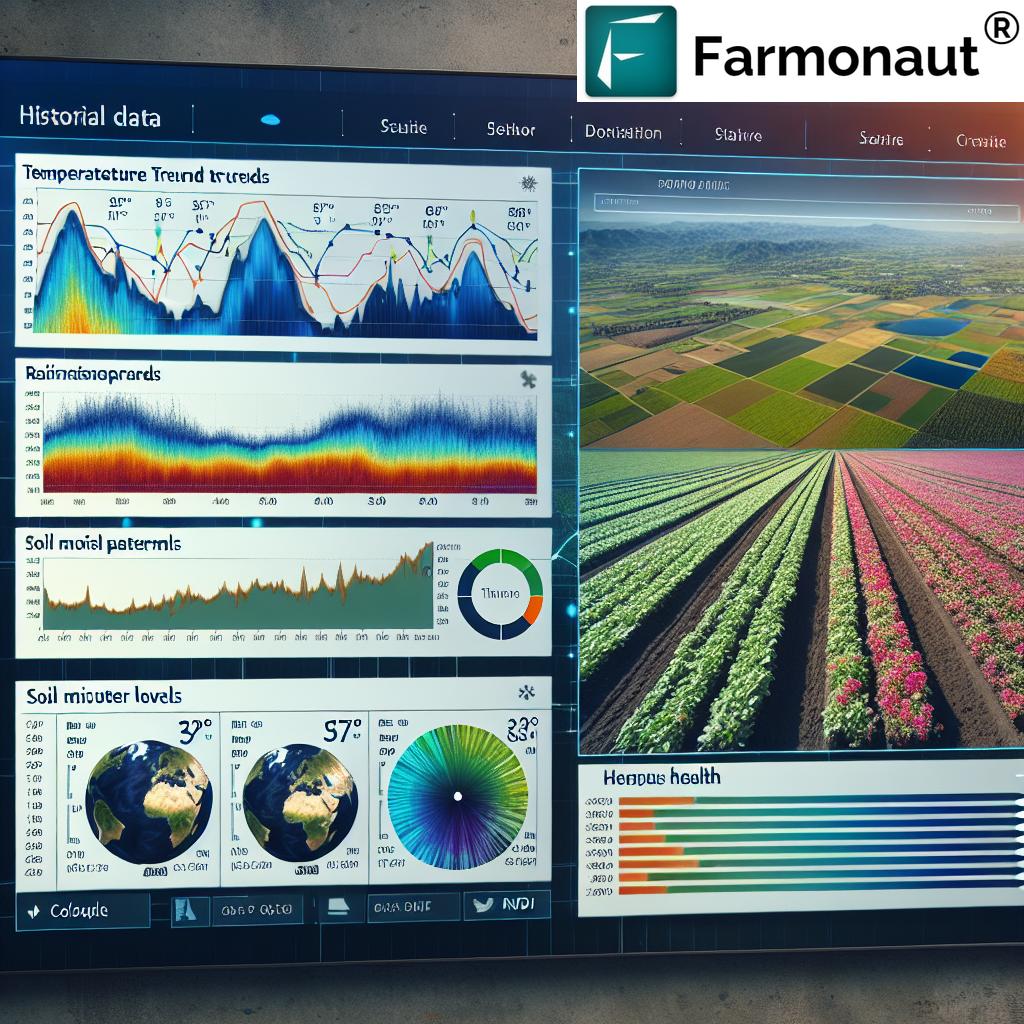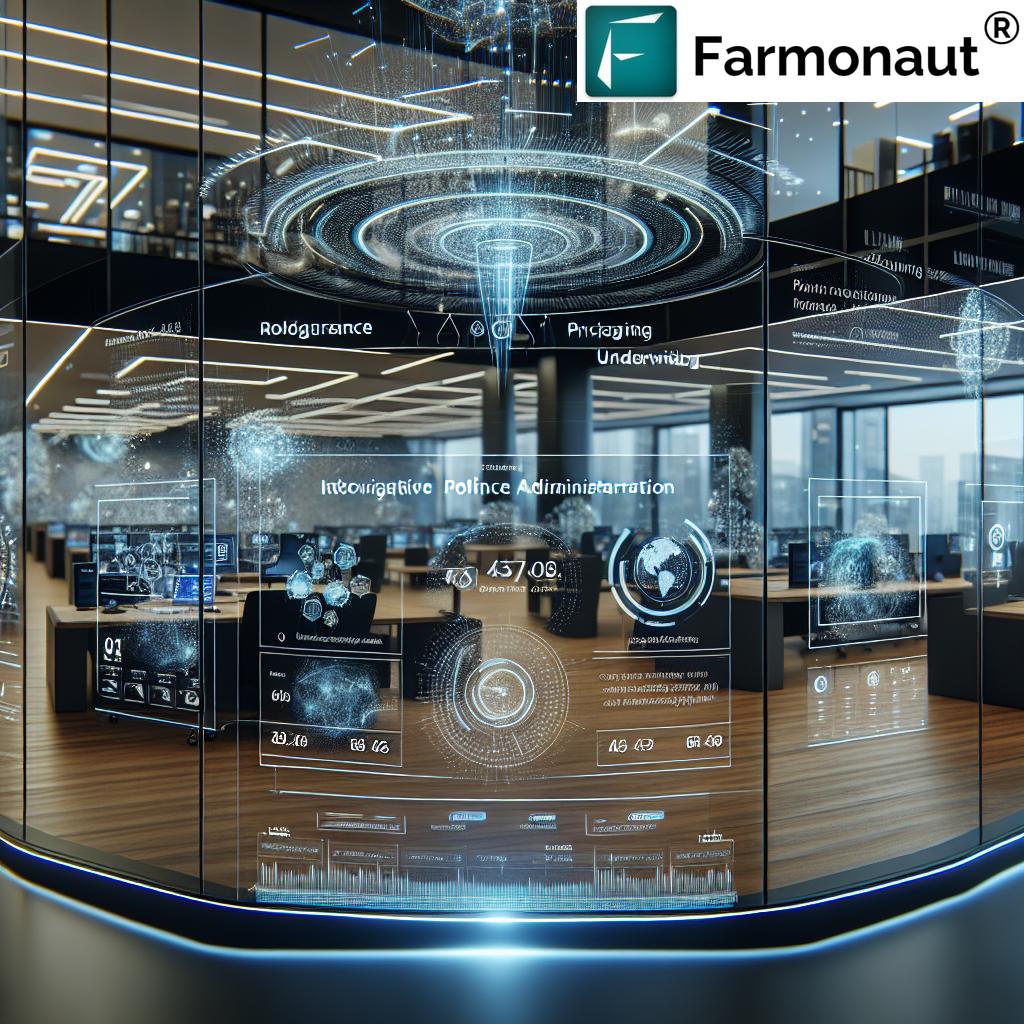Revolutionizing Agriculture: How Mera Farmhouse and Farmonaut Are Empowering Farmers with High-Tech Solutions
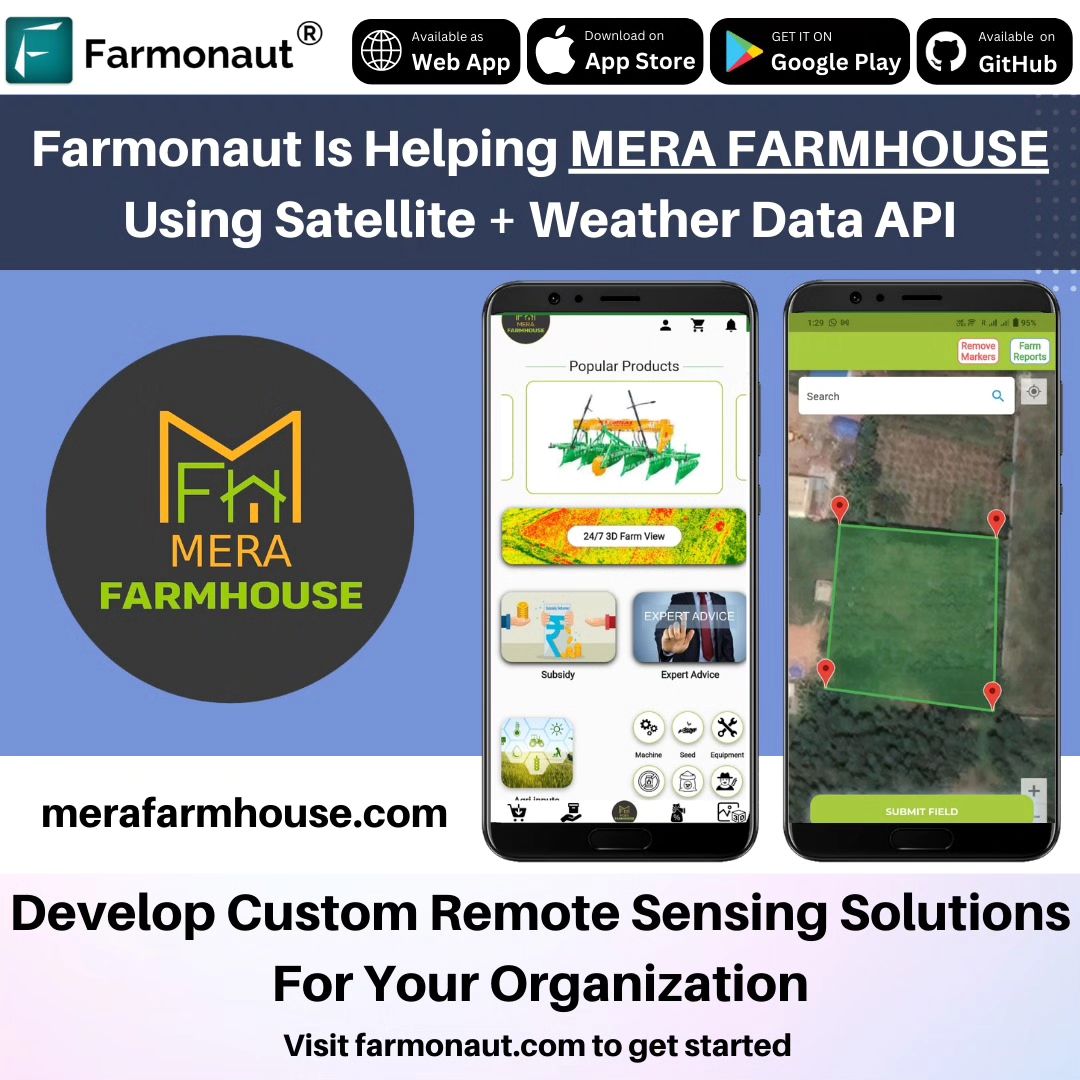
In the ever-evolving landscape of agriculture, technology is playing an increasingly pivotal role in empowering farmers and revolutionizing traditional farming practices. At the forefront of this agricultural revolution are innovative companies like Mera Farmhouse and Farmonaut, who are working tirelessly to bring cutting-edge solutions to farmers across the globe. In this comprehensive blog post, we’ll explore how these two companies are joining forces to transform the agricultural industry, making precision farming more accessible and affordable for farmers of all scales.
The Mera Farmhouse and Farmonaut Partnership: A Game-Changer for Agriculture
Mera Farmhouse, an AgTech enterprise, has been making waves in the agricultural sector by providing farmers with high-tech solutions that streamline their operations and improve productivity. In a groundbreaking move, Mera Farmhouse has integrated the Farmonaut® Satellite + Weather Data API into their platform, opening up a world of possibilities for farmers associated with their network.
This integration has been in place for several months now, and the results have been nothing short of spectacular. Farmers are now receiving critical crop health and irrigation insights based on the most recent satellite imagery of their fields. What’s more, these valuable insights are delivered via satellite reports and imagery in multiple languages, including Punjabi, Hindi, and English, ensuring that farmers across different regions can benefit from this technology.
The Power of Satellite Imagery in Agriculture
The use of satellite imagery analysis in agriculture is a game-changer, and Farmonaut is at the forefront of this revolution. By leveraging advanced satellite technology, Farmonaut provides a wealth of data that was previously inaccessible to most farmers. Let’s take a closer look at some of the key satellite-based indices that Farmonaut’s API offers:
- NDVI (Normalized Difference Vegetation Index): This index helps in assessing crop health and vigor.
- NDWI (Normalized Difference Water Index): Useful for monitoring water content in vegetation and soil moisture levels.
- EVI (Enhanced Vegetation Index): An improved version of NDVI that is more sensitive to changes in areas with high biomass.
- VARI (Visible Atmospherically Resistant Index): Helps in estimating the fraction of vegetation cover.
- SOC (Soil Organic Carbon): Provides insights into soil fertility and health.
- NDMI (Normalized Difference Moisture Index): Another useful index for monitoring vegetation water content.
- RVI radar vegitation Index: It is used when there is a cloud cover for crop health.
- RSM radar soil Moisture : It is used when there is a cloud cover for soil moisture.
This extensive array of satellite data, combined with weather information for all registered fields, allows farmers to track crop health, soil moisture, and weather conditions with unprecedented accuracy. The result? Improved decision-making and significant yield enhancements.
Mera Farmhouse: Bridging Farmers with Agricultural Resources
While the integration of Farmonaut’s API is a significant step forward, it’s just one part of Mera Farmhouse’s comprehensive approach to supporting farmers. The Mera Farmhouse application serves as a crucial bridge between farmers and suppliers of agricultural commodities and services. Let’s explore some of the key features that make Mera Farmhouse an indispensable tool for modern farmers:
1. Network of Agricultural Advisors
Mera Farmhouse has assembled a comprehensive network of agricultural advisors who play a vital role in helping farmers understand their land’s nutritional requirements for optimal crop growth. These experts provide personalized advice based on soil analysis, crop type, and local conditions, ensuring that farmers can make informed decisions about fertilization and soil management.
2. Livestock Expertise
Recognizing that many farmers also manage livestock, Mera Farmhouse provides access to livestock experts who guide farmers on crucial aspects of animal husbandry. This includes advice on vaccine schedules, disease recognition, and treatments for various animal breeds. By offering this comprehensive support, Mera Farmhouse ensures that farmers can manage both their crop and livestock operations efficiently.
3. Economic Planning Tools
One of the most significant challenges farmers face is economic planning. Mera Farmhouse addresses this by providing tools and resources that help farmers plan their crop and livestock operations economically. By considering factors such as market trends, input costs, and potential yields, farmers can make more informed decisions about what to grow and when.
4. AI and Satellite Imagery for Strategic Planning
Leveraging artificial intelligence and satellite imagery, Mera Farmhouse empowers farmers to strategize and monitor their crop health effectively. This combination of technologies allows for early detection of potential issues, enabling farmers to take proactive measures to protect their crops.
5. Subsidy Eligibility Assessment
Navigating the complex world of agricultural subsidies can be challenging for many farmers. Mera Farmhouse simplifies this process by helping farmers determine their eligibility for subsidies on machinery and other agricultural inputs. This service ensures that farmers can take full advantage of available government support, potentially reducing their operational costs significantly.
The Farmonaut Advantage: Why Satellite Monitoring Outperforms Drones and IoT
While drones and IoT devices have their place in modern agriculture, satellite-based monitoring systems like Farmonaut offer several distinct advantages. Let’s compare these technologies to understand why Farmonaut’s satellite system is often the preferred choice for crop health monitoring:
| Feature | Farmonaut Satellite System | Drone-based Monitoring | IoT-based Monitoring |
|---|---|---|---|
| Coverage Area | Large scale (hundreds to thousands of acres) | Limited (typically less than 100 acres per flight) | Limited (depends on sensor placement) |
| Frequency of Data Collection | Regular (every few days, depending on satellite pass) | On-demand, but limited by battery life and regulations | Continuous, but limited to sensor locations |
| Initial Setup Cost | Low (subscription-based) | High (equipment purchase, training) | Medium to High (sensors, network infrastructure) |
| Operational Complexity | Low (cloud-based, user-friendly interface) | High (requires trained operators, flight planning) | Medium (requires maintenance of sensors and network) |
| Weather Dependency | Low (can penetrate clouds with certain bands) | High (cannot operate in poor weather conditions) | Low (but sensors may be affected by extreme conditions) |
| Data Processing Time | Fast (automated processing) | Slower (requires manual processing of imagery) | Fast (real-time data, but limited parameters) |
| Scalability | Highly scalable (can monitor multiple farms easily) | Limited scalability (requires more equipment and personnel) | Moderate scalability (requires additional sensors and infrastructure) |
As we can see from this comparison, Farmonaut’s satellite-based system offers significant advantages in terms of coverage, cost-effectiveness, and ease of use, making it an ideal choice for farmers looking to implement crop monitoring devices and systems.
The Farmonaut API: Powering Innovation in AgTech
The power of Farmonaut’s technology extends beyond its direct applications for farmers. Through its API monitor and weather data API, Farmonaut is enabling a wide range of companies and startups to build innovative solutions for the agricultural sector. Some notable users of Farmonaut’s API include:
- Godrej Agrovet
- Coromandel International
- ZR3I Egypt
- FASHION FOR BIO-DIVERSITY Germany
- AGxactly Canada
- TROFORTE Australia
- Kisanwala
These diverse organizations, spanning multiple countries and sectors, demonstrate the versatility and global appeal of Farmonaut’s technology. By providing access to reliable satellite and weather data, Farmonaut is fostering innovation and enabling the development of custom remote sensing solutions tailored to specific agricultural needs.
The Urgent Need for Innovation in Agriculture
The agricultural industry is at a critical juncture. With the global population projected to reach 9.7 billion by 2050, the demand for food is expected to increase by 70%. At the same time, climate change is posing unprecedented challenges to traditional farming methods. In this context, the need for innovative and effective solutions in agriculture has never been more urgent.
Farmonaut’s API offers a significant leap forward by delivering reliable data that enables farmers and industry stakeholders to make decisions that benefit not just their businesses but the environment as well. By optimizing resource use, reducing waste, and improving crop yields, these technologies are paving the way for a more sustainable and productive agricultural future.
The Future of Farming: Precision Agriculture for All
One of the most exciting aspects of the partnership between Mera Farmhouse and Farmonaut is its potential to democratize access to precision agriculture. Historically, advanced farming technologies have been out of reach for many small and medium-sized farmers due to high costs and technical complexity. However, by leveraging satellite technology and user-friendly interfaces, these companies are making precision agriculture accessible to a much broader audience.
Here are some ways in which this partnership is revolutionizing farming practices:
- Data-Driven Decision Making: With access to real-time satellite imagery and weather data, farmers can make more informed decisions about planting, irrigation, and harvesting.
- Resource Optimization: By understanding the exact needs of their crops, farmers can optimize their use of water, fertilizers, and pesticides, reducing waste and environmental impact.
- Early Problem Detection: Satellite imagery can reveal issues with crop health before they become visible to the naked eye, allowing for early intervention.
- Improved Yield Forecasting: Advanced analytics can provide more accurate yield predictions, helping farmers and agribusinesses with planning and resource allocation.
- Sustainable Farming Practices: By optimizing resource use and reducing waste, these technologies promote more sustainable farming practices.
The Role of Weather Data in Modern Farming
While satellite imagery provides crucial insights into crop health and field conditions, weather data is equally important for successful farming. Farmonaut’s weather data API offers a wealth of information that can help farmers make critical decisions. Here’s how weather data is transforming agricultural practices:
- Precision Irrigation: By combining weather forecasts with soil moisture data, farmers can optimize their irrigation schedules, conserving water and improving crop health.
- Pest and Disease Management: Weather conditions play a crucial role in the development and spread of pests and diseases. Access to accurate weather data allows farmers to implement preventive measures at the right time.
- Planting and Harvesting Decisions: Knowing upcoming weather patterns helps farmers choose the best times for planting and harvesting, maximizing yield and quality.
- Frost Protection: Early warnings about potential frost events enable farmers to take protective measures for sensitive crops.
- Fertilizer Application: Weather conditions affect the efficacy of fertilizers. Data on precipitation and temperature helps farmers optimize the timing of fertilizer applications.
By integrating weather data with satellite imagery and on-ground observations, Farmonaut and Mera Farmhouse are providing farmers with a comprehensive toolkit for precision agriculture.
The Impact on Agricultural Supply Chains
The benefits of this technological revolution extend beyond the farm. By providing more accurate data on crop health and expected yields, these technologies are also transforming agricultural supply chains. Here’s how:
- Improved Planning: With better yield forecasts, food processors and retailers can plan their operations more effectively, reducing waste and ensuring a steady supply of produce.
- Traceability: Satellite monitoring can contribute to improved traceability in the food supply chain, addressing growing consumer demands for transparency.
- Risk Management: For agricultural insurers and lenders, access to reliable crop data can help in better risk assessment and management.
- Market Intelligence: Aggregated data from multiple farms can provide valuable insights into crop production trends, informing market strategies for agribusinesses.
The Global Impact of Precision Agriculture
The adoption of precision agriculture technologies like those offered by Farmonaut and Mera Farmhouse has the potential to address some of the most pressing global challenges:
- Food Security: By improving crop yields and reducing losses, precision agriculture can help meet the growing global demand for food.
- Climate Change Mitigation: Optimized resource use leads to reduced greenhouse gas emissions from agricultural activities.
- Water Conservation: Precision irrigation techniques can significantly reduce water usage in agriculture, addressing growing water scarcity issues.
- Biodiversity Protection: By minimizing the use of pesticides and fertilizers, these technologies can help protect local ecosystems and biodiversity.
- Rural Economic Development: Improved farm productivity and profitability can contribute to the economic development of rural communities.
How to Get Started with Farmonaut
For farmers, agribusinesses, and developers interested in leveraging Farmonaut’s powerful satellite and weather data APIs, getting started is easy:
- Visit the Farmonaut website to learn more about their services.
- Explore the Farmonaut API documentation for technical details on integrating the API into your systems.
- Download the Farmonaut mobile app for Android or iOS to start monitoring your fields on the go.
- For developers, check out the Farmonaut Satellite + Weather API Developer Docs for comprehensive guidance on building custom solutions.
Frequently Asked Questions (FAQ)
Q: What is Farmonaut?
A: Farmonaut is a pioneering agricultural technology company that offers advanced, satellite-based farm management solutions. It aims to make precision agriculture affordable and accessible to farmers worldwide by integrating innovative technology and data-driven insights into traditional farming practices.
Q: How does Farmonaut’s satellite monitoring work?
A: Farmonaut uses multispectral satellite images to monitor crop health, providing farmers with insights into vegetation health (NDVI), soil moisture levels, and other critical metrics. This data helps farmers make informed decisions about irrigation, fertilizer usage, and pest management.
Q: What is the Jeevn AI Advisory System?
A: Jeevn AI is Farmonaut’s AI-driven personalized farm advisory tool. It delivers real-time insights, weather forecasts, and expert crop management strategies to farmers by analyzing satellite data and other inputs to generate customized advice.
Q: Does Farmonaut offer solutions for traceability in agriculture?
A: Yes, Farmonaut integrates blockchain technology to enable traceability solutions for various industries, particularly agriculture. This ensures that every stage of the product’s journey, from farm to consumer, is transparent and secure.
Q: How can Farmonaut help with sustainable farming?
A: Farmonaut offers features like carbon footprint tracking and efficient resource management, which promote sustainable farming practices. These tools help businesses monitor and reduce their environmental impact while optimizing agricultural operations.
Q: Is Farmonaut suitable for small-scale farmers?
A: Absolutely. Farmonaut’s solutions are designed to be accessible and affordable for farmers of all scales, including small and medium-sized farms. The platform offers cost-effective precision agriculture tools that don’t require expensive hardware investments.
Q: How does Farmonaut compare to drone-based monitoring?
A: While drones offer high-resolution imagery, Farmonaut’s satellite-based system provides broader coverage, more frequent updates, and is less affected by weather conditions. It’s also more cost-effective and easier to scale for monitoring large areas.
Q: Can Farmonaut’s data be integrated with other farm management systems?
A: Yes, Farmonaut offers APIs that allow developers and businesses to integrate their satellite and weather data into other systems. This makes it possible to create custom solutions that work seamlessly with existing farm management tools.
Q: How often is satellite data updated in Farmonaut’s system?
A: The frequency of updates depends on the satellite pass and the specific service package. Generally, Farmonaut provides updates every few days, ensuring farmers have access to recent data for decision-making.
Q: Does Farmonaut offer support for users who are new to precision agriculture?
A: Yes, Farmonaut is committed to farmer education and support. They offer training programs, workshops, and ongoing support to help farmers effectively use and interpret the data provided by their platform.
Conclusion: Embracing the Future of Agriculture
The partnership between Mera Farmhouse and Farmonaut represents a significant step forward in the world of agriculture. By combining Mera Farmhouse’s comprehensive agricultural support services with Farmonaut’s advanced satellite and weather data APIs, these companies are creating a powerful ecosystem that empowers farmers to make data-driven decisions, optimize their operations, and increase their yields sustainably.
As we face the challenges of feeding a growing global population in an era of climate change, innovations like these will be crucial in ensuring food security while protecting our planet’s resources. The future of farming is here, and it’s powered by data, driven by technology, and focused on sustainability.
Whether you’re a small-scale farmer looking to improve your crop yields, an agribusiness aiming to optimize your operations, or a developer interested in creating the next big agricultural innovation, the tools and technologies offered by Mera Farmhouse and Farmonaut provide a solid foundation for success in modern agriculture.
As we continue to push the boundaries of what’s possible in AgTech, one thing is clear: the future of farming is bright, and it’s companies like Mera Farmhouse and Farmonaut that are lighting the way. By embracing these technologies and the insights they provide, we can work towards a future where agriculture is more productive, more sustainable, and more resilient than ever before.


